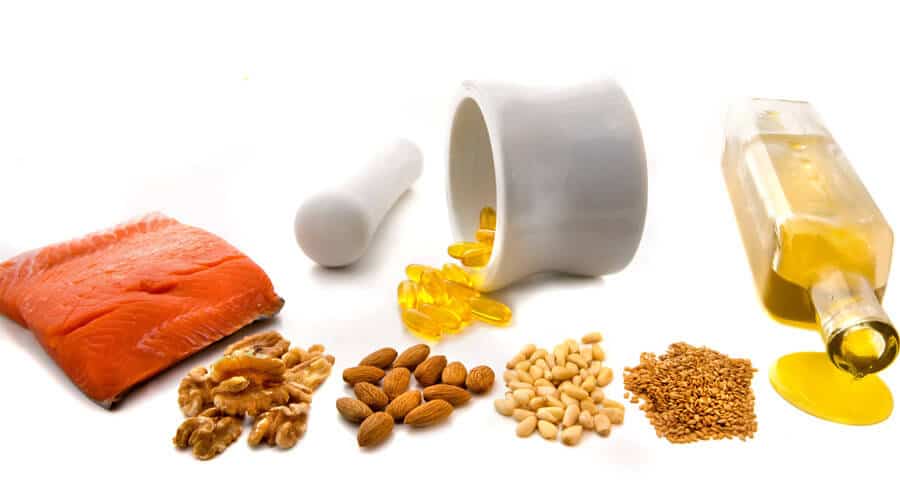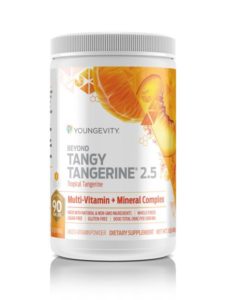
Shockingly 80 % of Americans are Vitamin K Deficient!
Anyone with a vitamin K shortage is extremely vulnerable to severe and even harmful illness including: brain disease, cardiovascular disease, cancer, stroke, osteoporosis, heel spurs, kidney stones and cardiac arrest.
Regrettably, many people are not familiar with the outstanding health benefits of vitamin K.
Unfortunately, the K vitamins have been underrated and misconstrued until recently in the scientific community.
It’s important to preserve a synergistic balance between vitamin K2, vitamin D, and Magnesium. Vitamin K2 and magnesium work together like vitamin D and K2. Otherwise, your health might be in jeopardy.
As a reader of our blog you are probably already using Youngevity products. In that case, you are covered!
Tangy Tangerine already contains an optimal amount of Vitamin K
Tangy Tangerine is part of every healthy body start pak.
BTW – We give away a free Healthy Body Start Pak every month. Enter to win by clicking here
Vitamin K History
Vitamin K was initially found in Germany in 1929 where the findings were released in a German scientific journal. Vitamin K was characterized just as an important nutrient for proper blood coagulation (blood clot). The Germans called it Koagulationsvitamin; that’s where the “K” originates from.
Nevertheless, the health benefits of vitamin K2 go far beyond simple blood clot, which is mainly the domain of vitamin K1. Moreover, vitamin K2 operates in synergy with other nutrients or co-factors like calcium, magnesium and vitamin D and A. Vitamin K2’s most pressing purpose is to escort calcium into the suitable areas of the body where it’s needed and can be correctly utilized. For example, it moves calcium into the bones and teeth and ushers it far from the arteries and other soft tissues where it can be dangerous– even fatal.
The unique yet collaborating functions of K1 and K2.
In general the general function of Vitamin K centers on its capability to customize proteins, so they can bind with calcium. Particularly, it “turns on” or turns on the calcium-binding buildings of proteins. While, it’s real that vitamin K1 is mostly made use of by the liver so it can turn on calcium-binding proteins required for blood clot K2 likewise triggers proteins, but primarily for a completely different purpose. K2 is the principal regulatory authority of calcium and eventually identifies where calcium end up in the body.
Dr. Leon Schurgers, a senior scientist who did his PhD work on vitamin K explains the information behind the overlapping coagulation functions of K1 and K2:”Both vitamins K1 and K2 trigger certain coagulation elements. Particularly, there are four coagulation factors (Factor 2, 7, 9, and 10) in the coagulation waterfall that are activated by vitamins K1 and K2.”.
The Three Types of Vitamin K.
1. Vitamin K1, or phylloquinone, is plentiful specifically in green veggies; K1 travels directly to your liver and supports healthy blood clotting.
2. Vitamin K2, likewise called menaquinone, is ideally made by the germs that line your gastrointestinal tract; K2 goes straight to your capillary walls, bones, and tissues but bypasses the liver.
3. Vitamin K3, or menadione, is an artificial form of K2 and is not recommend as it can be poisonous. In reality, infants injected with this synthetic version of vitamin K2 have actually displayed toxicity symptoms.
Furthermore, vitamin K2 has 2 subcategories:.
1. MK-4 (menaquinone-4) is a short-chain type of vitamin K2 discovered in butter, egg yolks, and other animal-based foods.
2. MK-7 (menaquinone-7) is a longer-chain variety of vitamin K2 and the most typical form. It’s a natural bacterial obtained K2 found in particular fermented foods.
3. The MK-7 type K2 is a germs driven originated from a fermentation process, which provides various health advantages:.
a. It stays in your body longer than the MK4 variety of K2 b. It has a longer half-life than MK4, which needs one to take it just once a day, yet get all its advantages throughout the day.
Key Vitamin K Points
The main function of Vitamin K is to trigger the calcium-binding properties of proteins. K1 is mostly associated with blood clotting, while K2 helps regulate where calcium lastly winds up in the body. A high intake of vitamin K2 is highly associated with a decreased threat of heart disease.
K2 is essential for preserving strong bones, teeth, and healthy arteries devoid of calcification.
If you take an oral vitamin D supplement, it’s necessary that you also consume foods that contain sufficient quantities of vitamin K2. Or less ideally, you can take a vitamin K2 supplement. Otherwise, you might unintentionally harm your health.
The reason you require vitamin K2 is since when you take a vitamin D supplement, your body immediately develops more vitamin K2-dependent proteins– the proteins that assist move the calcium around in your body. You require vitamin K2 to turn on those proteins. If they’re not activated, the calcium in your body will not be properly dispersed to where it’s required and wind up where it will do damage, resulting in weak bones and solidified arteries. Also, vitamin D and K2 interact as partners to strengthen your bones and improve your heart health.
Heart Health
America’s Heart Health Issues…
– About 600,000 individuals pass away of heart related issues in the United States every year– that’s 1 in every 4 deaths.1.
– Poor Heart health is the leading cause of death for both men and women. More than half of the deaths due to heart problem in 2009 remained in males.1.
– Poor coronary heart health is the most typical kind, killing nearly 380,000 people annually.1.
– Every year about 720,000 Americans have a cardiac arrest. Of these, 515,000 are a first heart attack and 205,000 happen in individuals who have actually already had a cardiac arrest.2.
– Coronary heart health alone costs the United States $108.9 billion each year.3 This overall consists of the cost of health care services, medications, and lost productivity.
Source: CDC.
A major threat element for cardiovascular disease is the deposition and accretion of calcium around the heart and arteries.
Vitamin K2 avoids calcium from being transferred in the arteries.
In 2004 The Rotterdam Study an ongoing epidemiological research discovered that high nutritional consumption of vitamin K2– but not vitamin K1– is a safeguard against heart disease.
According to PubMed another epidemiological study consisting of 16,057 women discovered that those with the greatest intake of vitamin K2 had a considerably lower danger of cardiovascular disease. Every 10 micrograms of K2 taken in daily, decreased the threat of cardiovascular disease by 9 %.
2) Brain.
K2 also appears to contribute in preserving optimal vascular circulation to the brain. It has been observed via autopsy that many of those detected with Alzheimer’s suffered from vascular degeneration. The present literature although limited recommends that vitamin K2 might play a considerable role in avoiding Alzheimer’s by hindering plaque deposition in the brain.
Vitamin K2 and Bone Health
Poor bone health indicates “permeable” bones, and it’s an all too common problem suffered mostly by females in Western countries. We understand Vitamin K2 plays a vital role in calcium metabolism and calcium is among the main minerals found in bones. Vitamin K2 triggers proteins involved in calcium-binding called Matrix gla protein and osteocalcin, which aid in building and preserving bones.
Long term studies with Japanese ladies showed significant enhancement in bone health when high dosages of vitamin K2 were administered. In fact, from 13 distinct trials only one failed to show enhancement.
7 of these Japanese trials found vitamin K2 reduced spinal fractures by 77 % and all other kinds of fractures by an impressive 81 %.
Based upon this research, Japanese medical professionals consistently suggest vitamin K2 supplements for the prevention and treatment of poor bone health.
Another research study, a 3-year trial with 244 postmenopausal females showed that female who were taking K2 supplements had substantially slower age related bone mineral density loss compared with those who didn’t supplement with K2.
Dental Health and Vitamin K2
Scientific studies way back in 1945 discovered that vitamin K2 was effective at preventing dental cavities. The American researchers made use of a double-blind, placebo-controlled research study with a chewing gum that had a vitamin K2 precursor (menadione) contributed to it.
Outcomes: Those using the special K2 gum not only had a decrease in brand-new cavities, there was also a significant reduction in bad bacteria in the mouth, the kind of bacteria which causes cavities.
Conclusion: We know without doubt that vitamin K2 is essential for maintaining skeletal health and teeth belong to the skeletal system. It follows that the condition of your teeth is a dependable reflection of your total skeletal system.
According to Dr. Kate Rheaume-Bleue, naturopathic doctor and author of the book: Vitamin K2 and the Calcium Paradox: How a Little Known Vitamin Could Save Your Life:.
“… for so long, we’ve been informed to take calcium for osteoporosis … and vitamin D, which we know is valuable. However then, more research studies coming out revealing that enhanced calcium consumption is triggering more cardiac arrest and strokes. That created a lot of confusion around whether calcium is safe or not. But that’s the incorrect concern to be asking because we’ll never effectively understand the health benefits of calcium or vitamin D, unless we take into consideration K2. That’s what keeps the calcium in its best place.”.
Foods Rich In Vitamin K2
To fully benefit from animal sources of MK4, they need to be grass-fed and organic. Milk products must be full fat and stemmed from grass-fed, hormone and antibiotic free cows. Liver and other organ meats also need to be natural and grass fed. Egg yolks must come from pastured chickens. Vitamin K is fat-soluble so low-fat and lean animal items include very little K2 (MK4).
Bottom Line: The K2 material of pasteurized milk and other items from confined animal feeding operations (CAFOs) are NOT a good source of K2 and must be prevented.
KEEP IN MIND: Cheeses are an exception to the grass fed rule when it pertains to K2. Although if possible, cheese from grass fed cows is the very best alternative for general nutrition. However high levels of K2 found in a few select cheeses are bacteria driven. The type of bacteria utilized in making the cheese is the vital to their K2 content. For example, Gouda and Brie are understood to be high in K2, even if they don’t originate from yard fed cows.
Bottom Line: vitamin K originates from 2 sources: K1 is stemmed from plant sources and K2 is discovered in animal sources. The greatest levels of vitamin K2 are discovered in a choice group of fermented foods.
The following table consists of quotes of the K2 content of different foods.
Natto (3.5 ounces) 1,000 mcg.
Fermented veggies made with Kinetic Culture (2 ounces) 400-500 mcg.
Entire egg mayonnaise 197 mcg.
Gouda or Brie cheese (1 ounce).
75 mcg.
Miso 10-30 mcg.
Lamb or duck (1 cup) 6 mcg.
Beef liver (1 cup) 5 mcg.
Dark meat turkey (1 cup) 5 mcg.
Chicken liver (1 cup) 3 mpg.
Take Home Message…
It’s important to preserve a synergistic balance between vitamin K2, vitamin D, and Magnesium. Vitamin K2 and magnesium work together like vitamin D and K2. Otherwise, your health might be in jeopardy.





No comment yet, add your voice below!